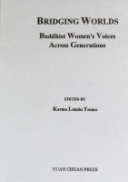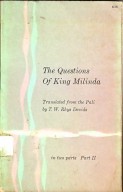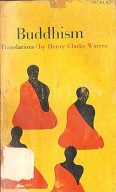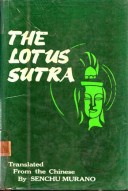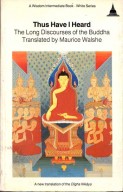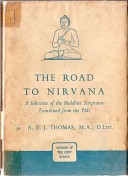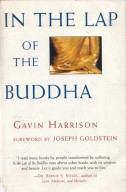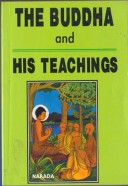Tìm Sách
Sách tiếng Anh-English >> Bridging Worlds – Buddhist Women’s Voices Across Generations
Thông tin tra cứu
- Tên sách : Bridging Worlds – Buddhist Women’s Voices Across Generations
- Tác giả : Karma Lekshe Tsomo
- Dịch giả :
- Ngôn ngữ : Anh
- Số trang : 279
- Nhà xuất bản : Yuan Chuan Press-Taiwan
- Năm xuất bản : 2004
- Phân loại : Sách tiếng Anh-English
- MCB : 1210000001599
- OPAC :
- Tóm tắt :
INTRODUCTION
Karma Lekshe Tsomo
Since 1987, an international coalition of women has been working at the grassroots level for change, both in society and in Buddhist institutions. At the end of the First International Conference on Buddhist Women, held outdoors under a tent in Bodhgaya, the participants founded Sakyadhita, “Daughters of the Buddha,” the International Association of Buddhist Women. This coalition has become a powerful movement that stretches around the globe, across boundaries of gender, ethnicity, class, and religious tradition. In theory, at least, both feminist values and Buddhist values apply equally to women of all cultural, economic, social, and religious backgrounds. The global women’s movement is an ideal staging ground for testing this hypothesis.
The globalization of Buddhism is multidirectional and multivalent. The current transmission of Buddhism to the west is not simply the importation of Buddhism to non-Asian countries, nor simply a two-way street, but a multi-directional intersection of ideas and practices. It would be a gross oversimplification to say that the exchange is completely balanced and egalitarian, however, since feelings of cultural superiority are apparent on all sides. In the Buddhist centers of Asia, there is a sense that they have “got it right,” whereas Western Buddhists are neophytes admirably struggling to understand the tradition, but hobbled by a lack of commitment, discipline, and good manners. In the Buddhist centers of non-Asian nations, there is also a sense that they have “got it right,” whereas Asian Buddhist centers have mixed Buddhism with spiritualism, ritual, and magic (“cultural baggage”), or degenerated into merit-making. Asian Buddhists base their claims of authenticity on tradition, whereas Western Buddhists base their claims on sanitized twentieth-century reinterpretations of tradition. In fact, both approaches are equally reconstructions of earlier forms of Buddhism that can never be completely known and both are equally dynamic processes of continual, ongoing reinterpretation.
What Sakyadhita has tried to do is bring Asian and Western women together to learn about each other’s traditions and experiences, and to create opportunities where women, especially Asian Buddhist women, can speak in their own voices, tell their own stories, and reflect on their own experiences Thus far, most of Sakyadhita’s activities have taken place in Asia. I believe that this focus on Asia is justified for two reasons. First, among an estimated 300 million Buddhist women worldwide, approximately 99 percent are Asian and, over the past 2500 years of history, Asian Buddhist women’s experiences have rarely been heard Second, Asia is where the needs of Buddhist women are greatest. For these reasons, Sakyadhita has increasingly become concerned with social justice issues, in addition to providing encouragement and support for women’s education, training, and ordination.
Contents
Message
His Holiness the Fourteenth Dalai Lama
Acknowledgments
Introduction
Karma Lekshe Tsomo
UNDERSTANDING BUDDHIST WOMEN AROUND THE WORLD
Thus Have I Heard: The Emerging Female Voice in Buddhism
Tenzin Palmo
Sakyadhita: Empowering the Daughters of the Buddha
TheaMohr
Buddhist Women of Bhutan
Tenzin Dadon (Sonam Wangmo)
Buddhist Laywomen of Nepal
Nivedita Kumari Mishra
Himalayan Buddhist Nuns
Pacha Lobzang Chhodon
Great Women Practitioners of Buddhadharma: Inspiration in Modem Times
Sherab Sangmo
Buddhist Nuns of Vietnam
Thich Nu Dien Van Hue
A Survey of the BhikkhunT Sarigha in Vietnam
Thich Nu Dong Anh (Nguyen Thi Kim Loan)
Nuns of the Mendicant Tradition in Vietnam
Thich Nu Tri Lien (Nguyen Thi Tuyet)
UNDERSTANDING BUDDHIST WOMEN OF TAIWAN
Buddhist Women in Taiwan
Chuandao Shih
A Perspective on Buddhist Women in Taiwan
Yikong Shi
The Inspiration of Ven Shig Hiu Wan
Xiuci Shi
Buddhism and Soft Power
Xiulian Annette Lu
The Development of the Bhiksuni Order
Tzu Jung Shih
The Future of Buddhism in Taiwan: The Perspective of a Senior Female Volunteer
Rong-Zhi Lin
Miaoqing and Yuantong Chan Nunnery: A New Beginning for Monastic Women in Taiwan
Stefania Travagnin
Religiosity and Leadership Among Taiwanese Buddhist Nuns
Yuchen Li
BRIDGING THE GENDER GAP, TRANSFORMING INSTITUTIONS
The Nature and Status of Women in the Teachings of the Buddha
Thich Nu Minh Hue (Hong Nga)
Sexuality in Theravada Buddhism: Wives, Widows, and Divorcees
Hema Goonatilake
New Beginnings: The Bhikkhuni Movement in Contemporary Thailand
Tomomi Ito
From Anonymity to Self-Reinvention: Korean Buddhist Nuns in the Twentieth Century
Eunsu Cho
Guanyin’s Gender Transformation in Medieval Japanese Buddhism: Bridging Sexuality and Motherhood
Mariko Namba Walter
BRIDGING THE WORLD’S RELIGIONS
Love in Any Language
Malta Dominica Wong
Building Bridges: A Muslim Woman’s Perspective
Hawwa Morales Soto
Bridging the Gap with Interreligious Dialogue
Karuna Dharma
Bridging World Religions from Within: On Being a Buddhist Christian Woman
Maria Reis Habito
BRIDGING THE BUDDHIST TRADITIONS
Comparing the First Buddhist Women in Early Chinese and Ancient Indian Buddhism Sukdham Sunim (Inyoung Chung)
Forging Friendships: Three Traditions of Vietnamese Buddhism
Thich Nu Lieu Phap (Duong Thi Thanh Huong)
Sexuality, Discipline and Ethics
Elisa Nesossi
BRIDGING THE VINAYA TRADITIONS
Almost Equal: Obstacles on the Way to an International Bhiksuni Sarigha
Karma Lekshe Tsomo
The Application of Feminist Theory to the Spiritual Practice of Buddhist Nuns: the Case of the Eight Special Rules
Wei-Yi Cheng
Tracing the Roots of the Bhiksuni Tradition
Roseanne Freese
Lineage and Transmission: Integrating the Chinese and Tibetan Orders of Buddhist Nuns Heng-Ching Shih
Precepts at Ensholi: The Rules of a Seventeenth-Century Japanese
Amadera Gina Cogan
BRIDGING GENERATIONS
Elder Care Programs Unifying Generations The Case of Ilsan Elder Welfare Center in Korea
Neungin Sunim
Reaching All Generations: Buddhist Outreach in Taiwan
Elise Anne DeVido
Betwixt and Between Communicating the Dharma Across Generations
Renlang Shih
Bridging Contemplation and Social Activism
Bhikkhuni Molini
BRIDGING VALUE SYSTEMS: ANCIENT & MODERN
Maintaining Inner Peace
Bhikkhuni Dhammananda (Chalsumam Kabilsingh)
Bridging Ancient & Modem Value Systems in Nepal
Bhikkhuni Dhammavijaya
A Plum Tree in the Pure Land
Yi-hsun Huang
Overcoming Tradition: Reconstructing and Transforming the Role of Korean Buddhist Nuns through Education
Bongak Sunim
Transforming Instead of Slaying the ‘Red Dragon’
Yeshe Chokyi Lhamo
From Family to Vihar to Temple: The Bond Between Buddhist Laywomen and Nuns
Chang-Huey Yang and Chang-Yi Chang
List of Contributors
 Facebook
Facebook
 Google
Google
 Google+
Google+
